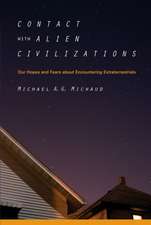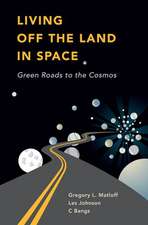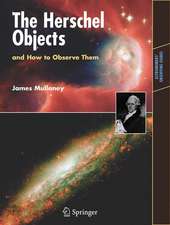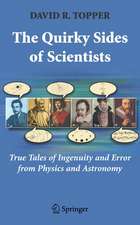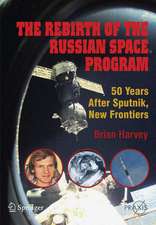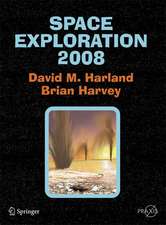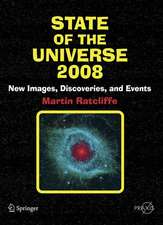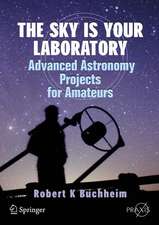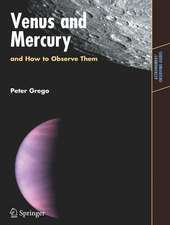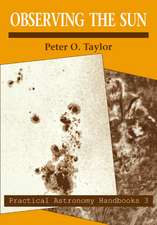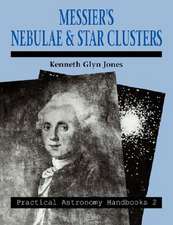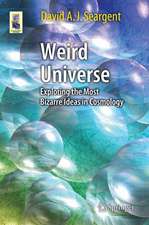Science, Culture and the Search for Life on Other Worlds
Autor John W. Traphaganen Limba Engleză Paperback – 2 sep 2016
The rapid growth in our awareness of other worlds makes this a crucial moment to think about and assess the influence of cultural values on the scientific search for extraterrestrial life. Here the author considers the junction of science and culture with a focus on two main themes: (1) the underlying assumptions, many ofwhich are tacitly based upon cultural values common in American society, that have shaped the ways researchers in astrobiology and SETI have conceptualized the nature of their endeavor and represented ideas about the potential influence contact might have on human civilization, and (2) the empirical evidence we can access as a way of thinking about the social impact that contact with alien intelligence might have for humanity.
Preț: 229.66 lei
Nou
Puncte Express: 344
Preț estimativ în valută:
43.96€ • 45.30$ • 37.11£
43.96€ • 45.30$ • 37.11£
Carte tipărită la comandă
Livrare economică 03-17 martie
Preluare comenzi: 021 569.72.76
Specificații
ISBN-13: 9783319417448
ISBN-10: 3319417444
Pagini: 150
Ilustrații: X, 161 p. 4 illus., 3 illus. in color.
Dimensiuni: 155 x 235 x 13 mm
Greutate: 0.25 kg
Ediția:1st ed. 2016
Editura: Springer International Publishing
Colecția Springer
Locul publicării:Cham, Switzerland
ISBN-10: 3319417444
Pagini: 150
Ilustrații: X, 161 p. 4 illus., 3 illus. in color.
Dimensiuni: 155 x 235 x 13 mm
Greutate: 0.25 kg
Ediția:1st ed. 2016
Editura: Springer International Publishing
Colecția Springer
Locul publicării:Cham, Switzerland
Cuprins
Science and Seti.- A Brief History of Imagining Life on other worls.- Science and the Emergence of Seti.- The Culture of Intelligence and the Intelligence of ETI.- Knowledge Production and Extraterrestrial Life.- Science, Culture and the Search for Life on Other Worlds.
Notă biografică
Dr. John W. Traphagan is a Professor of Religious Studies and Mitsubishi Heavy Industries Fellow at the University of Texas at Austin. Dr. Traphagan holds a Ph.D. in cultural anthropology from the University of Pittsburgh, an MAR in social and religious ethics from Yale University, and a BA in political science from the University of Massachusetts at Lowell. Dr. Traphagan’s research interests revolve around the intersection between culture and science and have explored issues such as the cultural construction of illness in Japan, concepts of autonomy in biomedical ethics, and the relationship between culture, religion and science in the scientific search for extraterrestrial intelligence. He has published numerous articles and chapters in anthropology, medical and religious studies journals and books and is the author of Taming Oblivion: Aging Bodies and the Fear of Senility in Japan (SUNY Press, 2000); The Practice of Concern: Ritual, Well-Being and Aging in Rural Japan (Carolina Academic Press, 2004); Rethinking Autonomy: A Critique of Principlism in Biomedical Ethics (SUNY 2013); and Extraterrestrial Intelligence and Human Imagination: SETI at the Intersection of Science, Religion, and Culture (Springer, 2015).
Textul de pe ultima copertă
This book explores humanity’s thoughts and ideas about extraterrestrial life, paying close attention to the ways science and culture interact with one another to create a context of imagination and discovery related to life on other worlds. Despite the recent explosion in our knowledge of other planets and the seeming era of discovery in which we live, to date we have found no concrete evidence that we are not alone. Our thinking about life on other worlds has been and remains the product of a combination of scientific investigation and human imagination shaped by cultural values--particularly values of exploration and discovery connected to American society.
The rapid growth in our awareness of other worlds makes this a crucial moment to think about and assess the influence of cultural values on the scientific search for extraterrestrial life. Here the author considers the junction of science and culture with a focus on two main themes: (1) the underlying assumptions, many ofwhich are tacitly based upon cultural values common in American society, that have shaped the ways researchers in astrobiology and SETI have conceptualized the nature of their endeavor and represented ideas about the potential influence contact might have on human civilization, and (2) the empirical evidence we can access as a way of thinking about the social impact that contact with alien intelligence might have for humanity.
The rapid growth in our awareness of other worlds makes this a crucial moment to think about and assess the influence of cultural values on the scientific search for extraterrestrial life. Here the author considers the junction of science and culture with a focus on two main themes: (1) the underlying assumptions, many ofwhich are tacitly based upon cultural values common in American society, that have shaped the ways researchers in astrobiology and SETI have conceptualized the nature of their endeavor and represented ideas about the potential influence contact might have on human civilization, and (2) the empirical evidence we can access as a way of thinking about the social impact that contact with alien intelligence might have for humanity.
Caracteristici
Considers the search for extraterrestrial life as a product of human imagination embedded in cultural context, rather than as simply an empirical process of exploration for life on other worlds Shows the close relationship between science and culture and frames ways in which the search for extraterrestrial life has been a product of the human imagination Provides a look at the influence of culture as we reconsider and reconstruct our understanding of humanity's place in the universe during this pivotal time of discovery of new planets in our galaxy


